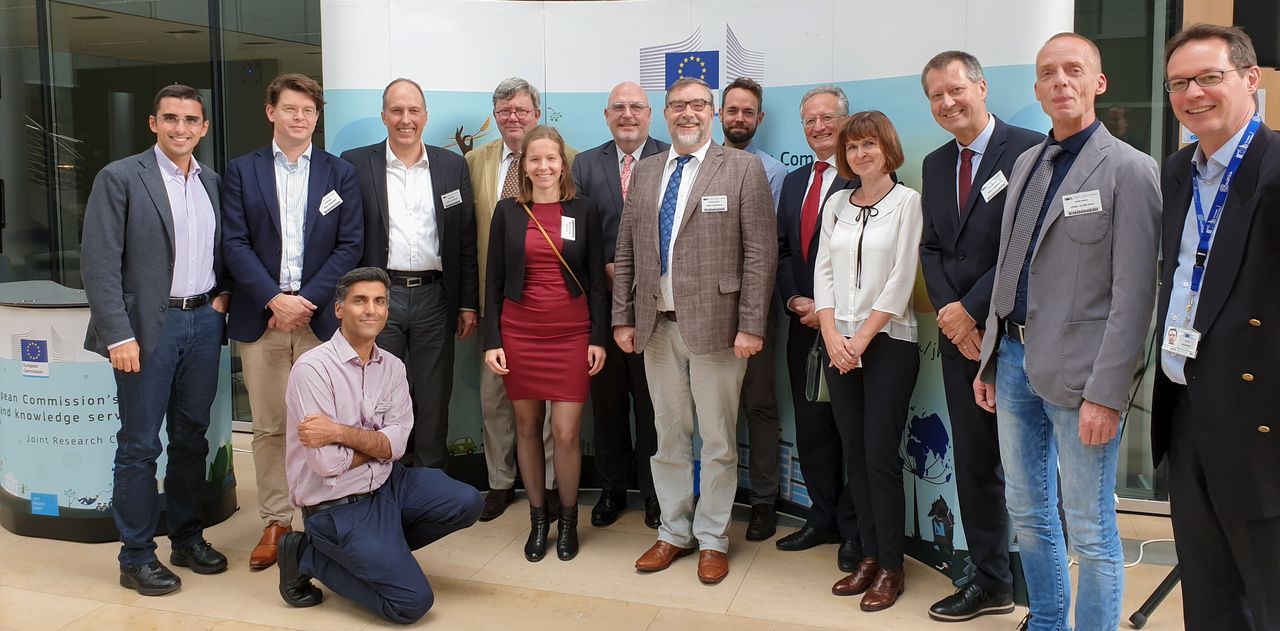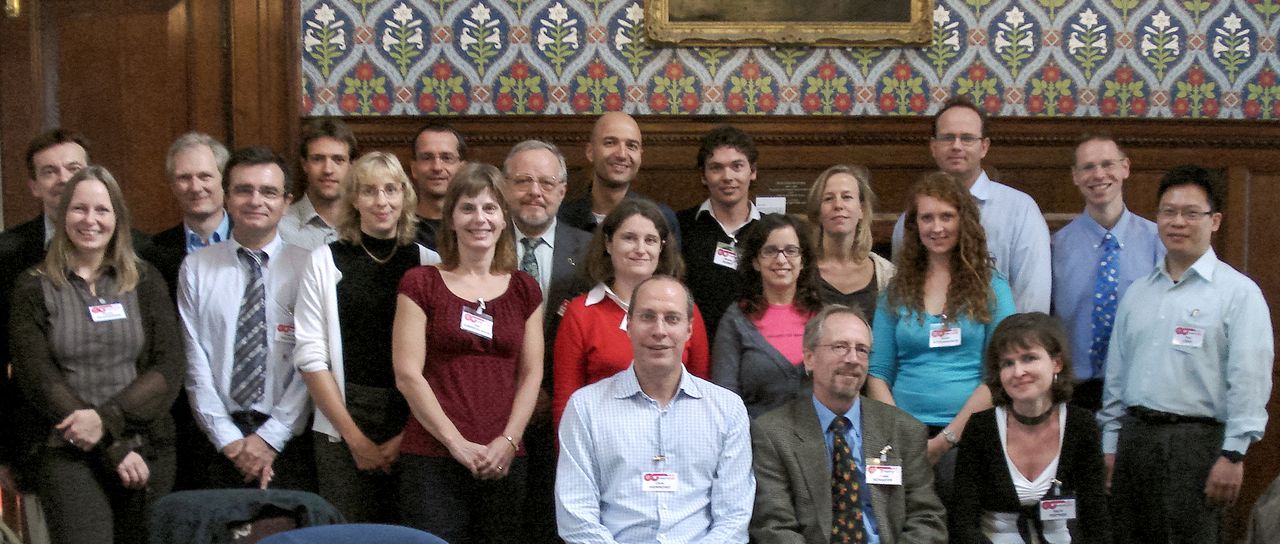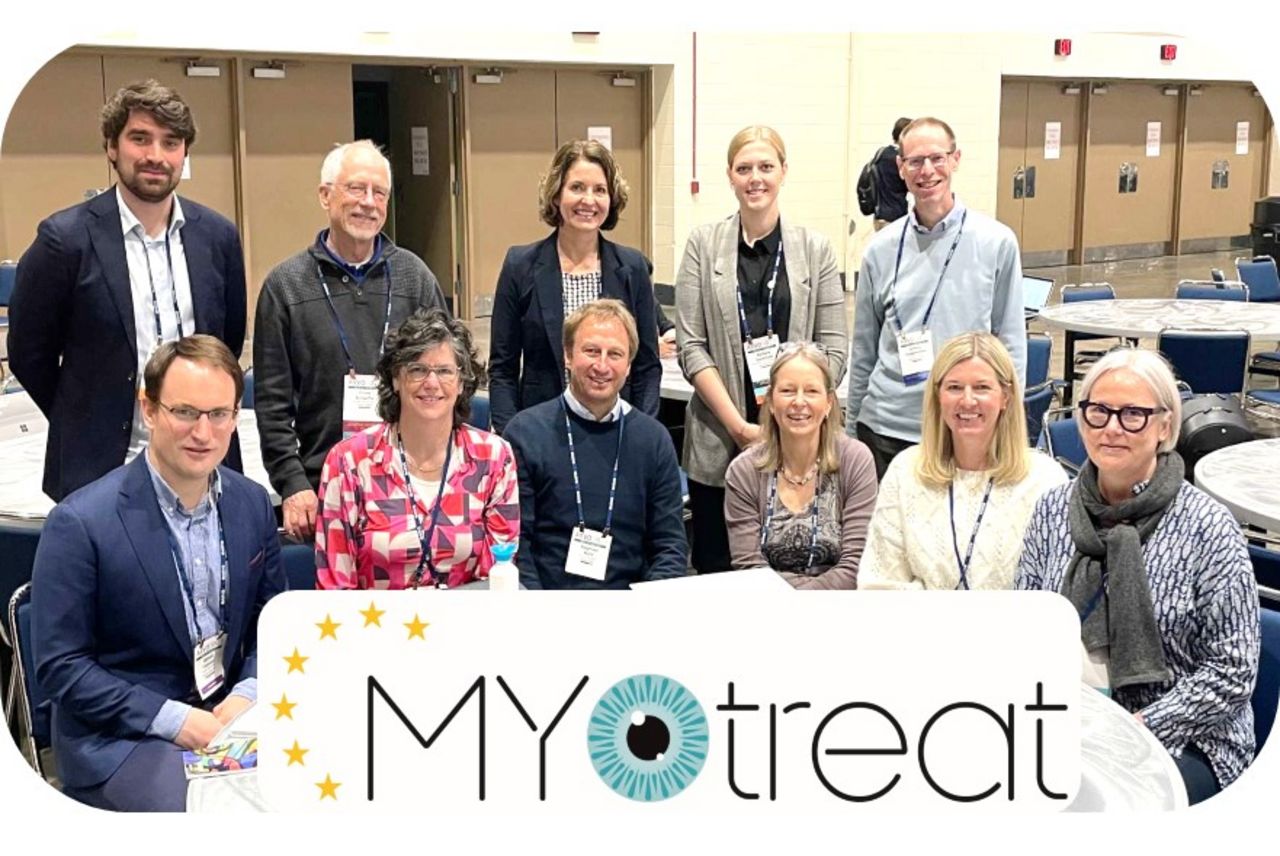
MyoTreat
This European project is coordinated by the Institute for Ophthalmic Research (Eberhard Karls University Tübingen)
The funded training network, "Myopia: from genes and environment to cellular responses and Treatment" (MyoTreat), aims to address the urgent need for more effective treatment interventions and earlier diagnosis of myopia, a complex disease with multiple causes. The network aligns with the EU health policy and the UN Sustainable Development Goal to improve health and well-being of citizens. It will train 14 doctoral students and be coordinated and managed by the Institute for Ophthalmic Research (Eberhard Karls University Tübingen): the scientist and manager in charge are Marita Feldkaemper and Sigrid Diether.
Research objectives include:
- Investigating the influence of environmental factors and gene-environment interactions on myopia development.
- Identifying and testing new treatment targets and biomarkers for myopia.
- Understanding the regulation of choroidal thickness, its relation to hypoxia, metabolic processes in the retina, and improving measuring techniques.
The consortium consists of 7 academic and 4 non-academic partners, assembling the best scientists in the field today. By employing state-of-the-art technologies and multidisciplinary expertise, the network seeks to provide answers to challenging research questions, training the next generation of scientists in this field
Addressing the causes of myopia development and underlying anatomical changes should be a top healthcare priority to develop targeted therapies. While Asian countries have made significant efforts to combat myopia, the EU currently lags behind. The MyoTreat network aims to bridge this gap and advance research in this area.
enTRAIN Vision
European Network for Integrated Training on Innovative Therapies for Vision Restoration
| Type: | Marie Sklodowska-Curie Innovative Training Network (ITN), grant agreement No 861423 |
|---|---|
| Project Coordinator: | Prof. Serge Picaud, Sorbonne Université, Institut de la Vision, Paris, France |
| Management: | Aurélie Pachkoff-Singh,Sorbonne Université, Institut de la Vision, Paris, France Dr. Sigrid Diether / Vera Schmidt, Institute for Ophthalmic Research, Tübingen, Germany |
| Partners: | 10 partners from 8 countries |
| Funding Agency: | European Union Horizon 2020 programme |
| Funding period: | 01 APRIL 2020 - 31 MARCH 2024 - 48 months |
Blindness is the most feared handicap leading to the greatest exclusion from society by reducing patient autonomy and mobility. There are still an estimated 39 million blind people worldwide. Clinical trials have demonstrated the possibility to regain some useful vision with retinal prostheses in patients having lost photoreceptors. New approaches are entering into clinical trials such as photovoltaic implants, optogenetic therapy and even cortical prostheses for patients having lost eye to brain connection.
In the present ENTRAIN-Vision project, the Early Stage Researchers (ESRs) will work on these innovative technologies for restoring vision in blind patients. Their training in academic institutes or industry will be completed by several secondments, including one at an industry partner. In addition, several winter/summer schools will address scientific subjects on vision restoration and transferable skills in technology transfer, clinical trials, start-up creation, and communication to media. Lectures will be followed by practice e.g. innovative technologies for assessing brain function.
The project will thus create a unique European network of researchers, clinicians and industrials on visual restoration. This network will provide a comprehensive training across multiple disciplines including neuroscience, vision, psychophysics, genetic, electronic, bio-engineering and computational modelling. It will therefore prepare a new generation of leaders able to carry the new therapeutic strategies from bench to patients. ESRs will encounter founders of start-up and industrial partners enlarging thereby job opportunities to 1) remain in the career path of research & innovation, 2) contribute to clinical trials and/or develop the rehabilitation programs or 3) get involved in product manufacture, distribution and marketing throughout Europe. This project will generate great social and economic benefits in Europe by improving patient autonomy and daily life.
More information: https://cordis.europa.eu/project/id/861423/de
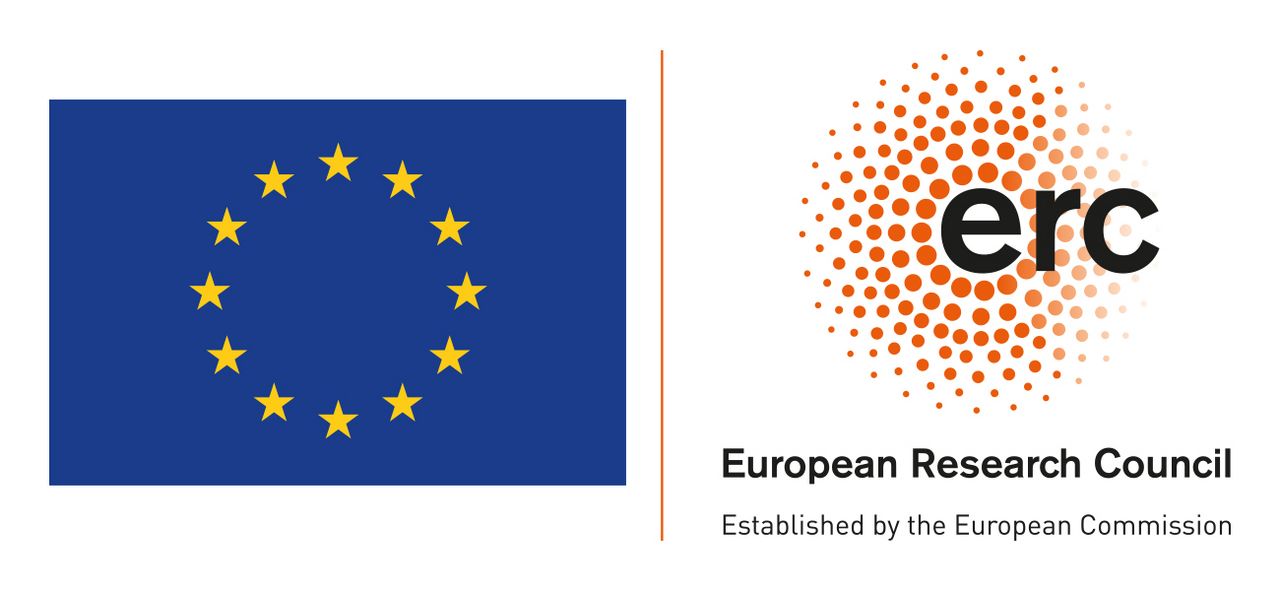
TrackCycle.2P
Exploring Visual Processes with Two-Photon Ophthalmoscopy
| Type: | ERC Starting Grant, grant agreement No 852220 |
|---|---|
| Project Coordinator: | Dr. Christina Schwarz, Institute for Ophthalmic Research, Tübingen, Germany |
| Management: | Dr. Thomas Wheeler-Schilling / Vera Schmidt, Institute for Ophthalmic Research, Tübingen, Germany |
| Partners: | 1 partner from 1 country |
| Funding Agency: | European Union Horizon 2020 programme |
| Funding period: | 01 FEB. 2020 - 31 JAN. 2025 - 60 months |
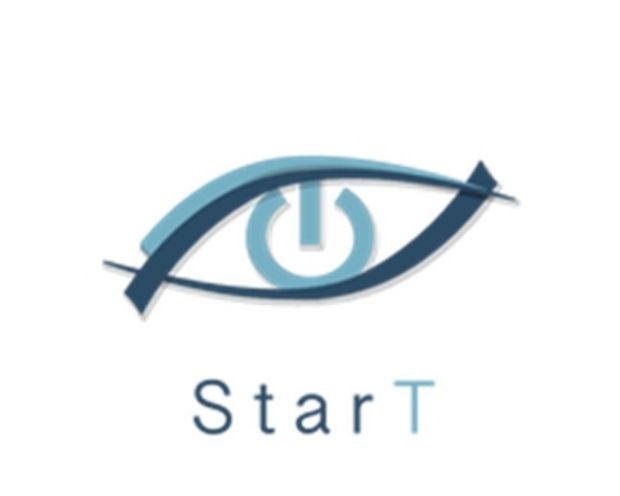
StarT
European Training Network to Diagnose, Understand and Treat Stargardt Disease, a Frequent Inherited Blinding Disorder
| Type: | Marie Sklodowska-Curie Innovative Training Network (ITN), grant agreement No 813490 |
|---|---|
| Project Coordinator: | Prof. Elfride De Baere, Ghent University, Belgium |
| Management: | Simone Dusseljee, Radboud University Medical Center, Nijmegen, Netherlands Dr. Sigrid Diether / Vera Schmidt, Institute for Ophthalmic Research, Tübingen, Germany |
| Partners: | 10 partners from 7 countries |
| Funding Agency: | European Union Horizon 2020 programme |
| Funding period: | 01 OCT. 2018 - 30 SEPT. 2022 - 48 months |

transMed
Educating the next generation of scientists in translational medicine: Focus on eye diseases
| Type: | Marie Sklodowska-Curie Innovative Training Network (ITN), grant agreement No 765441 |
|---|---|
| Project Coordinator: | Prof. François Paquet-Durand, Institute for Ophthalmic Research, Tübingen, Germany |
| Management: | Dr. Sigrid Diether, Institute for Ophthalmic Research, Tübingen, Germany |
| Partners: | 7 partners from 6 countries (4 academic research groups and 3 SMEs) |
| Funding Agency: | European Union Horizon 2020 programme |
| Funding period: | 01 DEC. 2017 - 30 NOV. 2021 - 48 months |
Soraprazan
Soraprazan - a new regenerative therapy for Stargardt's disease
| Type: | Collaborative project (clinical study); grant agreement No 779317 |
|---|---|
| Project Coordinator: | Dr. Thomas Wheeler-Schilling, Institute for Ophthalmic Research, Tübingen, Germany |
| Management: | Dr. Sigrid Diether, Institute for Ophthalmic Research, Tübingen, Germany |
| Partners: | 8 partners from 5 countries |
| Funding Agency: | European Union Horizon 2020 programme |
| Funding period: | 01 DEC. 2017 - 30 NOV. 2021 - 48 months |

OcuTher
Educational Network in Ocular Drug Delivery and Therapeutics
| Type: | Marie Sklodowska-Curie Innovative Training Network (ITN), grant agreement No 722717 |
|---|---|
| Project Coordinator: | Prof. Arto Urtti, University of Eastern Finland, Kuopio, Finland |
| Management: | Karin Koivisto, University of Eastern Finland, Kuopio, Finland Dr. Sigrid Diether / Vera Schmidt, Institute for Ophthalmic Research, Tübingen, Germany |
| Partners: | 9 partners from 6 countries |
| Funding Agency: | European Union Horizon 2020 programme |
| Funding period: | 01 NOV. 2016 - 31 OCT. 2020 - 48 months |

EYE-RISK
Exploring the combined role of genetic and non-genetic factors for developing Age-Related Macular Degeneration: A systems level analysis of disease subgroups, risk factors, and pathways
| Type: | Collaborative project (Personalised Health Care); grant agreement No 634479 |
|---|---|
| Project Coordinator: | Prof. Marius Ueffing, Institute for Ophthalmic Research, Tübingen, Germany |
| Management: | Dr. Sigrid Diether / Dr. Ellen Kilger, Institute for Ophthalmic Research, Tübingen, Germany |
| Other Partners: | 14 partners from 6 countries |
| Funding Agency: | European Union Horizon 2020 programme |
| Funding period: | 01 MAY 2015 - 30 APRIL 2019 - 48 months |
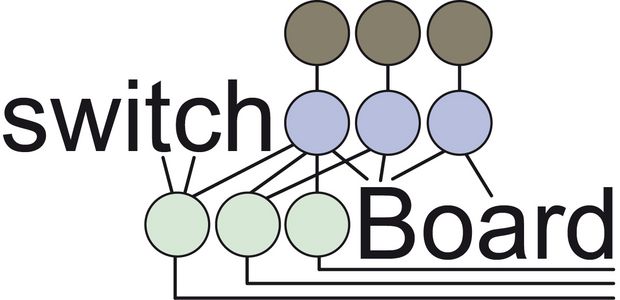
switchBoard
In the Eye of the Observer: Visual Processing at the Heart of the Retina
| Type: | ITN Marie Sklodowska-Curie grant agreement No 674901 |
|---|---|
| Project Coordinator: | Prof. Thomas Euler Institute for Ophthalmic Research, Tuebingen, Germany |
| Management:: | Dr. M. Bitzer / Dr. S. Diether (SWM) |
| Partners: | 11 partners from 8 European countries |
| Funding Agency: | European Union Horizon 2020 |
| Funding Period: | 01 NOV 2015 – 31 OCT 2019 - 48 months (implemented) |

MYFUN
Myopia: Fundamental Understanding Needed
| Type: | ITN Marie Sklodowska-Curie grant agreement No 675137 |
|---|---|
| Project Coordinator: | Prof. Frank Schaeffel Institute for Ophthalmic Research, Tuebingen, Germany |
| Management: | Dr. Sigrid Diether (SWM) |
| Partners: | 7 partners from 4 countries |
| Funding Agency: | European Union Horizon 2020 |
| Funding Period: | 01 JAN 2016 – 31 DEZ 2019 - 48 months (implemented) |
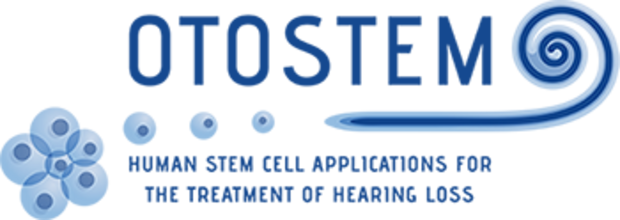
OTOSTEM
Human stem cell applications for the treatment of hearing loss
| Type: | RTD project under grant agreement No. 603029 |
|---|---|
| Project Coordinator: | Prof. H. Loewenheim, University Tuebingen, Otolaryngology, Germany |
| Management: | Dr. Thomas Wheeler-Schilling/ Dr. Sigrid Diether; Research Management Tuebingen - SCIPROM Sarl, Switzerland |
| Partners: | 10 partners from 7 countries |
| Funding Agency: | European Union 7th framework programme |
| Funding Period: | 01/11/2013 – 31/10/2017 - 48 months |

DRUGSFORD
Drugs for Retinal Degeneration
| Type: | Collaborative Project (HEALTH-F2-2012-304963) |
|---|---|
| Project Coordinator: | Prof. Francois Paquet-Durand Institute for Ophthalmic Research, Tuebingen, Germany |
| Management: | Dr. S. Diether / Dr. T. Wheeler-Schilling (SWM) |
| Partners: | 6 partners from 4 countries |
| Funding Agency: | European Union 7th framework programme |
| Funding Period: | 01 SEP 2012 – 31 AUG 2016 |

NEUROGUT
European Training in Neural Regulation of Intestinal Function
| Type: | ITN Marie Sklodowska-Curie No PITN-GA-2013-607652) |
|---|---|
| Project Coordinator: | Prof. Paul Enck University of Tuebingen, Germany |
| Management: | Dr. S. Diether / Dr. T. Wheeler-Schilling (SWM) |
| Partners: | 12 partners from 9 countries |
| Funding Agency: | European Union 7th framework programme |
| Funding Period: | 01 FEB 2014 – 31 JAN 2018 - 48 months |
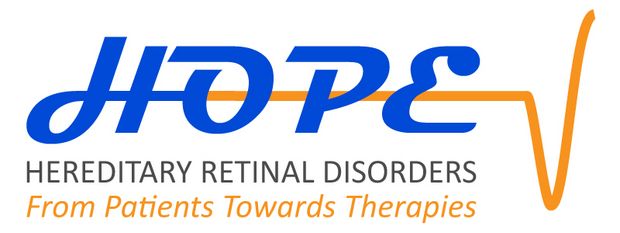
HOPE
Hereditary Retinal Disorders - From Patients Towards Therapies
| Type | Disease-specific Network for Rare Diseases |
|---|---|
| Project Coordinator: | Prof. Bernd Wissinger Institute for Ophthalmic Research, Tuebingen, Germany |
| Partners: | 7 partners on the national level |
| Funding Agency: | Federal Ministry of Education and Research (BMBF) |
| Funding Period: | 2009 - 2015 – 72 months in 2 funding periods |
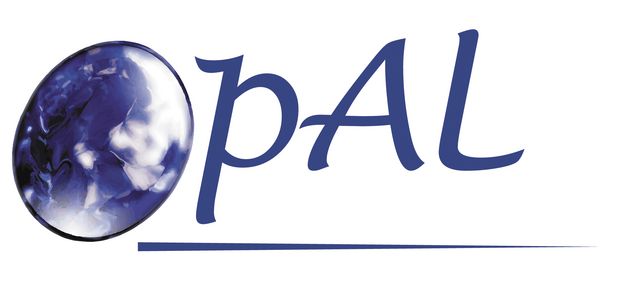
OpAL
Optical and Adaptational Limits of Vision
| Type | Initial Training Network (ITN) |
|---|---|
| Project Coordinator: | Prof. Frank Schaeffel Institute for Ophthalmic Research, Tuebingen, Germany |
| Management | Dr. Sigrid Diether & Dr. Michaela Bitzer, SWM |
| Partners: | 6 partners from 4 countries |
| Funding Agency: | European Commission 7th Framework Programme |
| Funding Period: | 01/04/2011 – 31/03/2015 - 48 months |
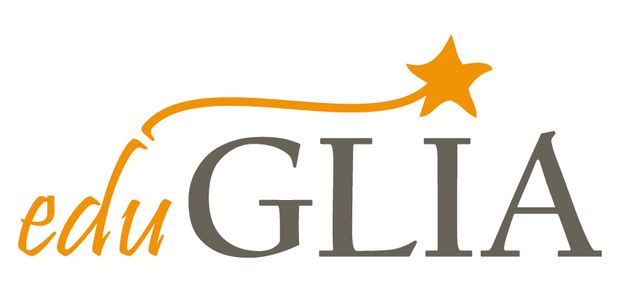
Edu-GLIA
Innovative Techniques and Models to Study Glia-Neuron Interactions
| Type | FP7 Initial Training Network (ITN) |
|---|---|
| Project Coordinator: | Dr. Thomas Wheeler-Schilling / Prof. Andreas Reichenbach University of Tuebingen and Leipzig |
| Partners: | 13 partners from 8 countries |
| Funding Agency: | European Commission, 7th Framework Programme |
| Funding Period: | 15/09/2009 - 14/09/2013 - 48 months |
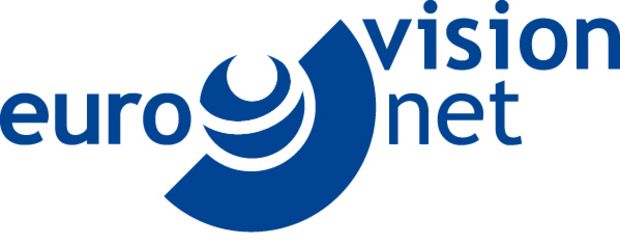
EuroVisionNet
Visual Impairment and Degeneration: A Road-map for Vision Research within Europe
| Type | Coordination Project |
|---|---|
| Project Coordinator: | Dr. Thomas Wheeler-Schilling European Vision Institute EEIG, Brussels, Belgium |
| Management | Dr. Thomas Wheeler-Schilling |
| Partners: | 9 partners from 6 countries |
| Funding Agency: | European Commission 7th Framework Programme |
| Funding Period: | 01/03/2008 – 29/02/2012 - 48 months |
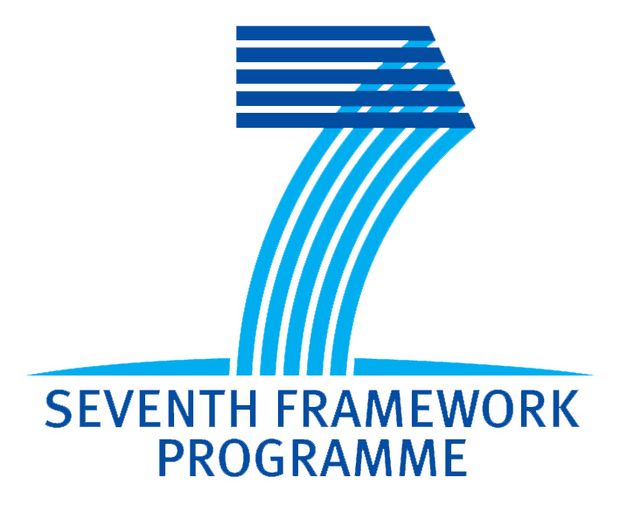
Crumbs in Sight
Restoring Müller glia cell – photoreceptor interactions with Crumbs
| Type | R&D project |
|---|---|
| Project Coordinator: | Prof. J. Wijnholds, University of Amsterdam, The Netherlands |
| Partner | Prof. M. Seeliger, University of Tuebingen, Germany |
| Partners: | 6 partners from 4 countries |
| Funding Agency: | European Commission 7th Framework Programme |
| Funding Period: | 01/04/2008 – 31/05/2012 - 50 months |

CavNet
L-type Calcium Channels in Health and disease
| Type | Research Training Network (RTN) |
|---|---|
| Project Coordinator: | Prof. Marlies Knipper Hearing Research Centre, Tuebingen, Germany |
| Management | Dr. Michaela Bitzer/Dr. T. Wheeler-Schilling |
| Partners: | 12 partners from 8 countries |
| Funding Agency: | European Commission 6th Framework Programme |
| Funding Period: | 15/12/2006 – 14/12/2010 -48 months |

MyEuropia
European Training in Myopia Research
| Type | Research Training Network (RTN) |
|---|---|
| Project Coordinator: | Prof. Frank Schaeffel Institute for Ophthalmic Research, Tuebingen, Germany |
| Management | Dr. Sigrid Diether & Dr. T. Wheeler-Schilling |
| Partners: | 8 partners from 4 countries |
| Funding Agency: | European Commission 6th Framework Programme |
| Funding Period: | 01/10/2006 – 30/09/2010 - 48 months |
This application brings together a major part of the European expertise in myopia research. Biological mechanisms underlying myopia development are widely studied in the USA, Australia and, in particular, in the far East Asian countries. But until now, there is little contribution from Europe. Current research in myopia is funded exclusively by local govermental institutions. Given the increasing importance of myopia in the industrialized countries, a more bundled approach is necessary and timely.
The current application brings together three major approaches to arrest myopia development
- changing spectacle lens design
- identifying gene loci that are linked to myopia development
- investigating the biochemical signalling cascade from the retina to the sclera that controls axial eye growth and testing its pharmacological intervention.
A unique aspect of the research training in this RTN application is that we will be training physicists, computer science students and engineers in biological techniques. On the other hand, biology and medicine student will have an introduction on the technological aspects, in addition to the cutting-edge and more specialized training in the particular topics of their projects.
More information on the archived website
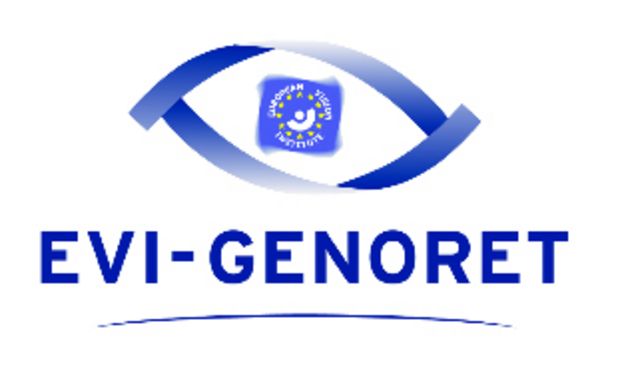
EVI-GenoRet
Functional genomics of the retina in health and disease
| Type | RTD Integrated Project (IP) – LSHG-CT-2005-512036 |
|---|---|
| Project Coordinator: | Dr. Thomas Wheeler-Schilling, European Vision Institute, Brussel, Belgium Prof. J. Sahel, Institute de la Vision, Paris, France |
| Management | Dr. Oliver Lorentz, Institute de la Vision Paris, France Dr. E. De Luca, Research Management Tuebingen, Germany |
| Partners: | 24 partners from 11 countries |
| Funding Agency: | European Commission 6th Framework Programme |
| Funding Period: | 01/04/2006 – 31/03/2010 - 48 months |

Neurotrain
Training and Understanding Neurodegenerative Diseases
| Type | Early Stage Research Training (EST) |
|---|---|
| Project Coordinator: | Dr. Thomas Wheeler-Schilling / Prof. Shom S. Bhattacharya University of Tuebingen & UCL London |
| Management | Dr. Thomas Wheeler-Schilling (SWM) |
| Partners: | 10 partners from 3 countries |
| Funding Agency: | European Commission 6th Framework Programme |
| Funding Period: | 01/02/2006 – 31/01/2009 - 36 months |
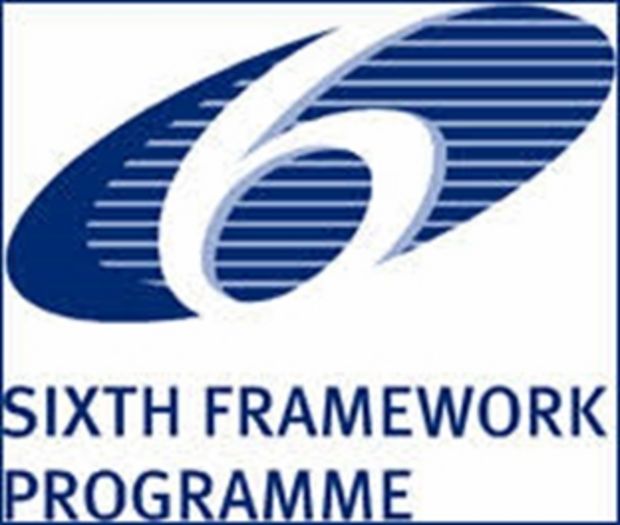
PolExGene
Biocompatible non-viral polymeric gene delivery systems for the ex-vivo treatment of ocular and cardio-vascular diseases width high unmet medical need.
| Type | Specific Targeted Project (STREP) |
|---|---|
| Project Coordinator: | Prof. Schacht/Prof. Dubruel, Ghent University, Belgium |
| Partner: | Prof. E. Zrenner, University Tuebingen, Germany |
| Partners: | 9 partners from 6 countries |
| Funding Agency: | European Commission 6th Framework Programme |
| Funding Period: | 01/06/2006 – 30/11/2009 – 42 months |
The objective of this project is to develop a non-viral ex vivo gene therapy that will be applied for both ocular and cardiovascular diseases with high unmet medical need. The research of the project focuses on improving polymeric DNA-delivery by combining polyplexes with cell penetrating peptides (CPP). To circumvent the toxic and immunogenic problems related to viral vectors, the gene vectors developed in this project will be a non-toxic and non-immunogenic, biodegradable polymeric carrier based on multifunctional poly-a-aminoacids. The potential of the CPP-containing polyplexes regarding their transfection efficiency and the absence of any toxic or immunogenic side effects will be evaluated using two gene transfer approaches. In a first approach, cells will be transfected with polyplexes (i.e. polymer-DNA complexes) and then seeded on a polymer membrane prior to implantation. Alternatively, the polymer membrane will be surface coated with polyplexes prior to cell seeding and implantation. In order to enhance the internalisation efficiency, the polyplexes will be functionalised using Penetratin-like CPP. In order to improve the membrane-cell interaction and to enhance the cell proliferation and differentiation, the polymer membrane will be functionalised with cell interacting peptides (CIP).
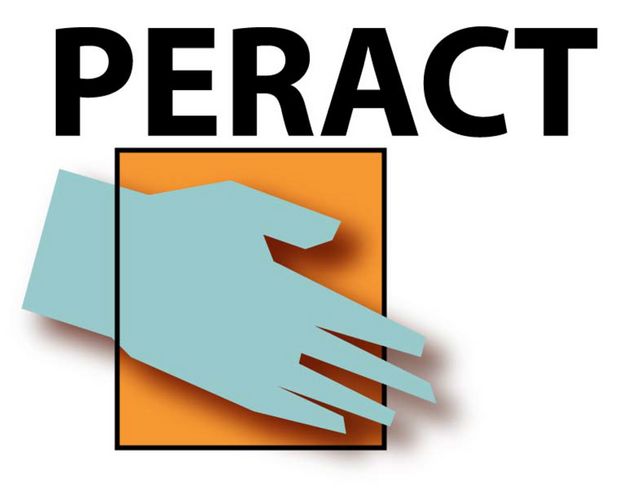
PERACT
Perception and Action in Space
| Type | Marie Curie Host Fellowships for Early Stage Research Training (EST) |
|---|---|
| Project Coordinator: | Prof. Hanspeter A. Mallot University Tuebingen, Germany |
| Management: | Dr. Thomas Wheeler-Schilling |
| Partners: | 8 partners on a local level |
| Funding Agency: | European Commission 6th Framework Programme |
| Funding Period: | 01/08/2004 - 31/07/2008 - 48 months |

RETNET
European Retinal Research Training Network
| Type | Research Training Network |
|---|---|
| Project Coordinator: | Dr. Thomas Wheeler-Schilling / Prof. Shom S. Bhattacharya University of Tuebingen & UCL London |
| Management | Dr. Thomas Wheeler-Schilling (SWM) |
| Other Partners: | 9 partners from 7 countries |
| Funding Agency: | European Commission 6th Framework Programme |
| Funding Period: | 01/01/2004 - 31/12/2007 – 48 months |
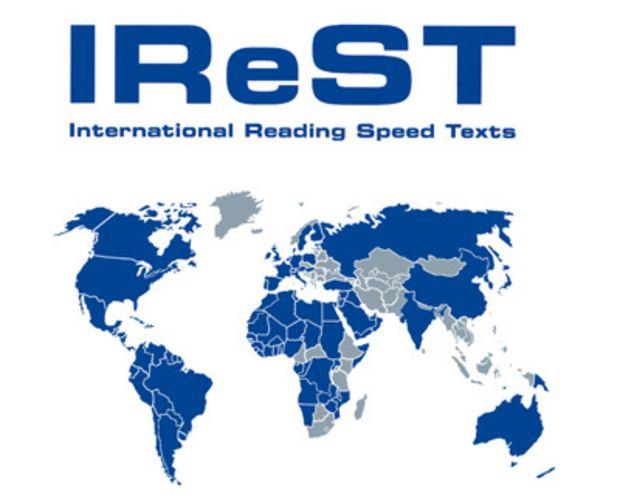
AMD-READ
Age-Related Macular Degeneration: Assessment and Optimisation of Macular Function with Special Regard to Reading and Motor Control
| Type | Research and Technological Development (RTD) |
|---|---|
| Project Coordinator: | Prof. Dr. Susanne Trauzettel-Klosinski University Eye Clinic, Tuebingen, Germany |
| Management: | Dr. Thomas Wheeler-Schilling (SWM) |
| Partners: | 5 partners from 4 countries |
| Funding Agency: | European Commission 6th Framework Programme |
| Funding Period: | 01/05/2002 – 30/04/2005 – 36 months |
KYNA
Modulation of kynurenic acid synthesis in rodent models of retinal degeneration
| Type | Marie Curie Individual Fellowship (MCIF) |
|---|---|
| Project Coordinator: | Prof. Eberhart Zrenner Institute for Ophthalmic Research, Tuebingen, Germany |
| Management: | Dr. Thomas Wheeler-Schilling (SWM) |
| Partners: | 1 partner on local level in Tuebingen |
| Funding Agency: | European Commission 5th Framework Programme |
| Funding Period: | 01/01/2003 – 31/12/2004 – 24 months |
Kynurenic acid (KYNA) may act as a neuroprotectant against retinal degeneration. I will investigate modulation of its retinal content and the expression and cellular distribution of key enzymes of KYNA synthesis kynurenine aminotransferases I and II (KAT I and II) in rodent models of optic nerve trauma, glaucoma and diabetic retinopathy.
PRO-AGE-RET
Protection Against Ageing in Retina
| Type | Research and Technological Development (RTD) |
|---|---|
| Project Coordinator: | Prof. Jose Sahel, Paris, France |
| Partner: | Prof. E. Zrenner, University Tuebingen, Germany |
| Further Partners: | 11 participants from 7 countries |
| Funding Agency: | European Commission 5th Framework Programme |
| Funding Period: | 01/01/2002 – 31/12/2004 – 36 months |
Neurodegenerative diseases of the eye affect a large proportion (14 million in Europe) of the growing ageing population. Blindness or severe impairment of vision results from several processes such as ischemia or gene mutations in various groups of diseases e.g. retinal dystrophy, diabetic retinopathy and glaucoma, involving primarily photoreceptors (PR) or the inner retina, especially retinal ganglion cells (RGC). Age-related macular degeneration (ARMD), the primary cause of blindness in Europe is a multifactoral condition, and both environmental and genetic mechanisms are probably affecting PR. To respond to this major societal health problem, we intend to promote a coordinative project between current and future national and industrial research programs on neuroprotection of retinal cells. The overhall objective of this neuroprotection project is to reduce the proportion of blind persons among the ageing population in Europe and abroad.
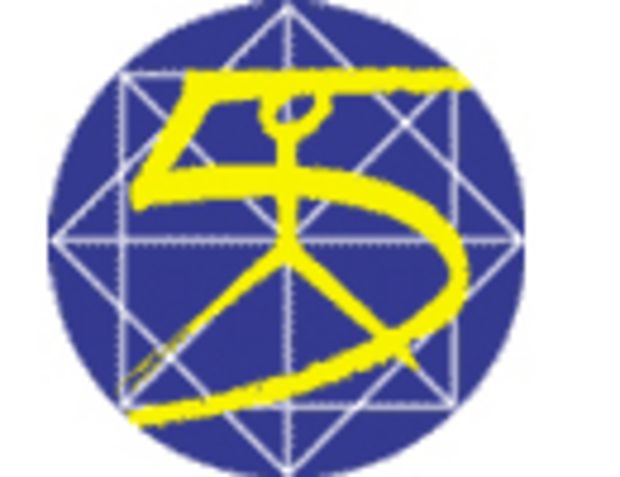
RETRAINET
Prevention and Therapy of Blinding Retinal Neuro-Degenerations
| Type | Research Training Network (RTN) |
|---|---|
| Project Coordinator: | Prof. Eberhart Zrenner Institute for Ophthalmic Research, Tuebingen, Germany |
| Management: | Dr. Thomas Wheeler-Schilling (SWM) |
| Other Partners: | 5 partners from 5 countries |
| Funding Agency: | European Commission 5th Framework Programme |
| Funding Period: | 01/09/2000 – 31/08/2004 – 48 months |
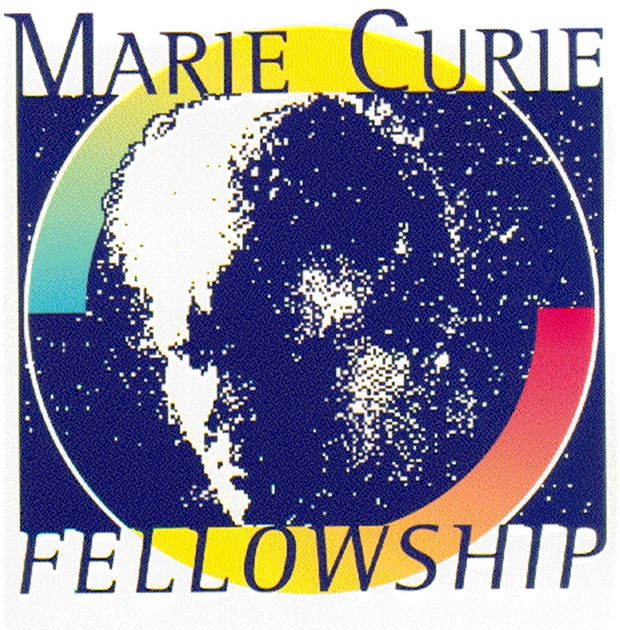
FIGHTING BLINDNESS
Prevention of Blindness: The Structure and Function of the Visual System
| Type | Marie Curie Early Stage Training Site (EST) |
|---|---|
| Project Coordinator: | Prof. Dr. Ulrich Schiefer University Eye Clinic Tuebingen, Germany |
| Management: | Dr. Thomas Wheeler-Schilling (SWM) |
| Partners: | 6 partners on a local level in Tuebingen |
| Funding Agency: | European Commission 5th Framework Programme |
| Funding Period: | 01/11/2001 – 31/10/2005 – 48 months |
The mission of the proposed Marie Curie Training Site "PREVENTION OF BLINDNESS: The Structure and Function of the Visual System" at the University Eye Hospital Tuebingen is, to apply with a truly multidisciplinary approach to improve the understanding of the normal and pathological visual system. In order to achieve this goal, nine different research groups are interacting in the fields of: (1) computer-assisted automated kinetic perimetry; (2) pupil campimetry; (3) psychophysical and electrophysiological study of the retina; (4) retinal pigment epithelium grafting; (5) release systems for intraocular drugs; (6) roles of melanin pigmentation; (7) function of colour vision; (8) subretinal visual prosthesis and (9) testing of photoreceptor-specific function. The application of cutting edge interdisciplinary technologies to fundamental visual questions is the driving force behind this proposal. For mutual understanding of the goals and accomplishments in each discipline, a strong interaction between clinicians, engineers, IT-specialists, pharmacologists and biologists is imperative. Our training site will allow this goal to be achieved and at the same time provide the opportunity of high impact interactions between the groups in which the fellows will be integrated.
VISION
Function and Dysfunction of the Visual System
| Type | Marie Curie Early Stage Training Site (EST) |
|---|---|
| Project Coordinator: | Prof. Eberhart Zrenner Institute for Ophthalmic Research, Tuebingen, Germany |
| Management: | Dr. Thomas Wheeler-Schilling (SWM) |
| Other Partners: | 9 partners on the local level |
| Funding Agency: | European Commission 5th Framework Programme |
| Funding Period: | 01/08/2000 – 31/07/2004 – 48 months |
The mission of the proposed Marie Curie Training Site at the University-Eye-Hospital in Tuebingen "FUNCTION AND DYSFUNCTION OF THE VISUAL SYSTEM" is to apply a multidisciplinary approach to the understanding of the normal and pathological visual system. To achieve this goal eight research groups are interacting in the fields of cell physiology, molecular biology, retinal and clinical electrophysiology, histology, cell biology, experimental myopia research, psychophysics, colour vision, and molecular genetics. Remarkable recent advances in all of these fields have dramatically improved the prospects for finding new strategies for deciphering the function and dysfunction of the visual system. Indeed, the application of cutting edge interdisciplinary technologies to fundamental visual questions is a driving force behind this proposal. For mutual understanding of the goals and accomplishments in each research discipline, a strong interaction between geneticists, biologists, and ophthalmologists as well as engineers, pharmacologists and physiologists, is imperative. Our training site will allow this goal to be achieved and at the same time provide the opportunity of high impact interactions between the constituent groups in which the fellows will be integrated.




